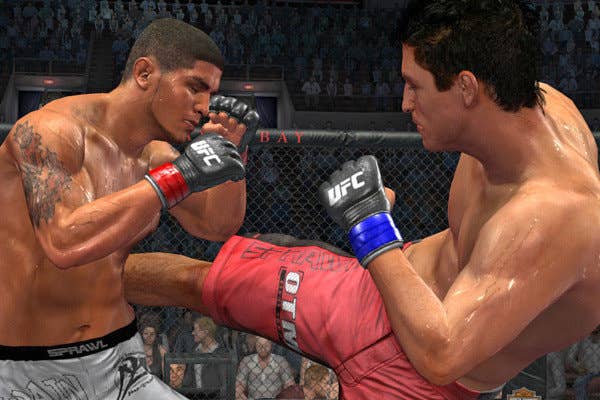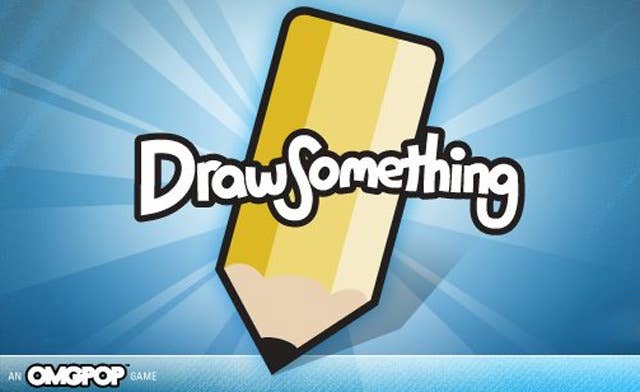Epic Fail: The Losers of 2012
These five stinkers were so massive that their impact was felt across the industry
What makes us select something as one of the Losers of the year? It's not just failure; there are plenty of games or companies that haven't done well in any given year. The quality that brings something to Loser of the Year status is scale; the failure has to be of a type, nature or size such that it has a significant impact on the games industry. In other words, you haven't just failed; you've failed in a way that has had a broad impact on the business.
While there may be some measure of relief (glad it wasn't our company) or horrified enjoyment (pass me that snifter of Schadenfreude, please) as we consider these exemplars of how not to succeed, we should not forget that each of these failures comes with a human cost. People have lost their jobs, families have been hurt, and the damage continues well after the news stories have faded. Perhaps unfortunately, those most responsible for these failures often suffered much less than the low-level employees who were just trying to do their best. Let's hope that the continuing growth of the gaming industry can help those who need it most, and that blunders on this epic scale will be rarer in the future.
38 Studios
There's not going to be much debate about putting 38 Studios on the Losers list. The high-profile studio created by baseball star Curt Schilling went bust in spectacular fashion this year, vaporizing a $75 million dollar loan from the state of Rhode Island's Economic Development Corporation. The head of the EDC later resigned, and the state has launched investigations into the whole debacle. The company declared bankruptcy after failing to make payroll and a payment to the state.

Many talented people worked with 38 Studios, including designer Ken Rolston, artist Todd McFarlane, and writer R.A. Salvatore, and over a hundred others. Some employees quickly found new positions as other studios stepped up to acquire talent; Epic Games set up Impossible Studios in Baltimore using many employees from 38 Studios. The fallout from this debacle will continue to affect people, probably for years, as the lawsuits and investigations unfold.
The fall of 38 Studios seems to have put an end to Rhode Island's desire to put state funds into bringing companies to the state. Other states who may be approached by game companies in the future, seeking tax breaks or investment, will certainly get a much greater scrutiny after what happened with 38 Studios. Investors are likely to be much more wary in the future about investing in game companies, especially those headed by fans instead of seasoned executives. More than that, it's going to be much harder to get investment in big RPGs or massive MMOs. In the end, 38 Studios' demise affected not just the company but also the state of Rhode Island and made it harder for other parts of the game industry.
THQ
The progressive disintegration of THQ has taken on the air of tragedy in the classical sense; at this point, the unraveling of the publisher seems like the inexorable workings of fate. THQ put itself in a tailspin last year with the ill-advised uDraw tablet which cost the company hundreds of millions of dollars. Once that damage was done, everything else continued to fall apart. Losing the UFC license this summer was another blow, removing one of THQ's most popular games from its lineup.

THQ brought in ex-Naughty Dog Jason Rubin to try make sure upcoming products would be top quality, but that's like an expert harbor pilot parachuting onto the deck of the Titanic after it's already hit the iceberg. Rubin's assessment that key titles would not be released in the next quarter precipitated THQ's suspension of providing guidance to analysts about future performance. The resignation shortly thereafter of CFO Paul Pucino was another symptom of a company in deep trouble (a CFO resigning when not immediately taking a position elsewhere is usually a sign of a very bad situation).
THQ is now searching for financing, or an outright buyer, in order to continue operations. The company is the poster child for the death of the non-AAA title; none of its titles would really be considered in the same category as Call of Duty, Grand Theft Auto or Madden. A once vibrant company with hundreds of employees is shrinking into irrelevance; its market capitalization is less than the budget for one of its titles, yet no one seems to be eager to buy. Apparently the evaluation by other publishers is that it's better to let the company go bankrupt and then pick up any desirable assets at the lowest possible price (what happened to Midway). That way buyers avoid any part of Brian Farrell, the chairman and CEO of THQ, who surely must bear the largest responsibility for the downfall of the company.
THQ's decline and fall will make investors even warier of game company stocks, and everyone will be questioning putting resources into console titles that are not already assured of success by virtue of their brand name. THQ is contributing to the decline of new console titles by its performance, and imperiling the release of the South Park video game. It takes a real Loser to do both those things.
Zynga
The word Loser was not something that could be associated with Zynga for most of its existence. The company got in early on Facebook and rode the skyrocketing growth of that platform, reaping the benefit of the massive viral marketing potential of Facebook in the heady days before restrictions on messaging your friends were put in place.

Zynga made few friends in the industry on its way up, dogged by accusations of copying designs, shady customer acquisition and outright poaching of employees from other game companies (hello, Electronic Arts). Zynga's audience grew to hundreds of millions, the staff grew to thousands, and the company went public just about a year ago with the stock at $10 per share.
It was soon after that things began to fall apart for Zynga, as Facebook had tightened up on notifications that drove new player acquisition. Zynga's high-profile purchase of OMGPOP for its smash hit Draw Something proved to be a waste of $200 million as the game's popularity plummeted. Revenues dropped, some of Zynga's new releases were not getting the enormous growth of past titles, and it all came together in a perfect storm. When Zynga announced that it would underperform analyst expectations, the bottom fell out of the stock, and its value plunged all the way to just above $2 per share.
Zynga was now valued at barely more than the cash it has in the bank, and executives found themselves with baskets full of valueless stock options. The possibility of millions of dollars in stock had lured many game execs to Zynga; seeing that possibility vanish led many of them to leave. The exodus has counted more than a dozen top executives so far. Zynga has issued new options to employees to stem the flood of exits.
Now Zynga is trying to recover from its fall, expanding its program to distribute games from other developers, working on real-money gaming and genres beyond the casual games they are known for, and pushing hard to get more products on mobile platforms. The fall of Zynga has led to a cooling of interest in the whole category of social gaming, with the very term becoming less popular. Zynga may yet claw its way back to growth and profitability and higher stock prices; after all, it still has $1.6 billion in cash in the bank and thousands of talented employees and an audience of over 300 million people who play Zynga games. Zynga's not about to go out of business any time soon, but for 2012 it has to be counted as a Loser.
Discs in boxes
Remember when you used to actually drive miles to a store to buy a cardboard or plastic box containing a disc if you wanted a game? It's not going to be too long before young kids will be shaking their heads in wonderment at the difficult life their parents had, having to go somewhere to get a game, and then actually put a physical object in a machine at home to be able to play a game.

That day is approaching faster than ever, as retail sales of hardware, software, and accessories continue their decline from the peak of 2008. NPD continues every month to try and put a cheery spin on the double-digit declines, but the statements are beginning to take on an air of whistling past the graveyard. Perhaps they should just quote the plague victim from Monty Python and the Holy Grail: “I'm not dead, I'm feeling much better!”
Some execs (usually those with retailers) say this is just natural decline that always happens at the end of a console cycle. This console cycle has been unusually long, hence the decline has been prolonged and deepened. Once new consoles ship, retail sales will recover to previous levels.
That may be, but never before in a console cycle has there been competition on computers, smartphones and tablets that have already grabbed a considerable share of game-playing time and money from gamers. Those lost retail buyers may be lost forever. Considering that retail sales of discs in boxes still provides the majority of revenues at publishers like EA and Activision, the continuing sales decline makes discs in boxes one of the year's Losers.
PS Vita
How could such a sweet piece of hardware be a Loser? Look at the little darling, with its beautiful 5” eyepopping color touchscreen, analog joysticks, laden with sensors, a rear touchpanel, and other bells and whistles. What's not to like?

Perhaps it's the base $249 price point, or the lineup of games that's less than stellar. Or maybe it's just the fact that most gamers already have a gaming device in their pocket, and no room or need to drop a few hundred dollars on another one. Or maybe it's the uninspired marketing efforts, or the competition from the 3DS, smartphones, and tablets priced at or below the level of the PS Vita. Whatever the reason, the PS Vita has been a major sales disappointment for Sony.
How do we know this? Sony's own sales projections from earnings reports are telling. Initially Sony projected that it would sell 16 million PS Vitas by the end of March 2013, 15 months after its introduction in December of 2011. This August Sony lowered that figure to 12 million units, and at its last earnings call lowered it again to 10 million units. That's got to be disappointing to Sony execs.
Prospects for the PS Vita in 2013 don't look any rosier. We will continue to see increased competition from ever-more-powerful smartphones and tablets, many priced less than the PS Vita. Nintendo's 3DS continues to rack up sales, partly with great games and partly by being priced $80 less than the PS Vita. Meanwhile, Sony's weakened financial condition has apparently left it unwilling to take the one key step that might revitalize PS Vita sales - lowering the price.
The time for a price drop was before the all-important holiday selling season. Sure, Sony can lower the price any time, but a lackluster sales performance this holiday will keep more publishers away form considering the creation of PS Vita titles. If software support weakens, so do hardware sales... and thus begins a vicious feedback cycle. The PS Vita may still avoid that fate, but the verdict of 2012 is that it's a Loser.

